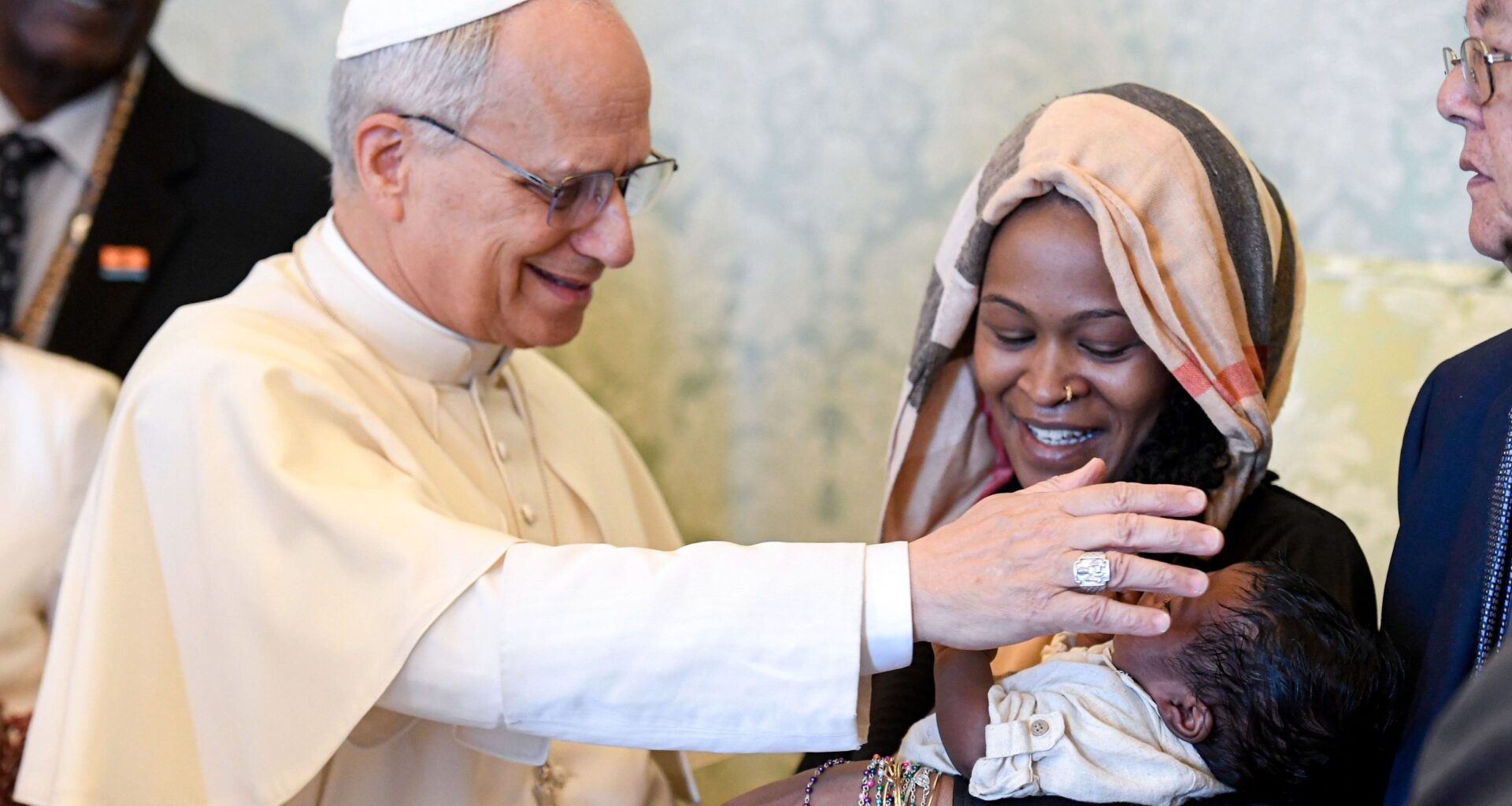The celebration this week of the 111th World Day of Migrants and Refugees is an opportunity to assess the state of global migration and the response of the church to a very difficult time for immigrants and refugees around the world.
Not only are we witnessing a mass deportation campaign in the United States, but other wealthy nations, including Canada and countries in Europe, are slowly closing their doors to asylum seekers, refugees and other persons on the move.
On a global scale, it is not a pretty picture. Close to 125 million persons are forcibly displaced around the world, with the number of refugees having jumped from 35 million to 43 million in the past two years. Conflicts in the Democratic Republic of the Congo, Ukraine, Myanmar, Gaza and Sudan are generating displaced persons at a rapid rate. The week of Sept. 14, 111 Sudanese refugees, desperate to make it to Europe, drowned in the Mediterranean Sea.
At the same time, the Trump administration has shut down its refugee resettlement program and virtually ended overseas refugee assistance, leaving many populations vulnerable to disease and hunger. Europe has adopted a new pact to restrict asylum claims, while Canada has cut immigration by nearly 60 percent. And many politicians and their supporters continue to scapegoat migrants for a variety of social problems in an attempt to justify their inhumane treatment of them.
To put it mildly, Pope Leo XIV has inherited a migration crisis of historic proportions. As the leader of the universal church, he stands as one of the few global leaders able and willing to speak out in defense of the migrant. In several recent statements, he has provided a roadmap for tackling the issue, approaching it in a strategic and diplomatic manner while continuing to strongly defend the human dignity and human rights of persons on the move.
In his recent message for the World Day of Migrants and Refugees, which the church will celebrate Oct. 4-5, he describes migrants as contributors to the common good rather than destroyers of it. In a message entitled “Migrants, Missionaries of Hope,” Pope Leo describes migrants as “privileged witnesses of hope,” who “bear heroic testimony to a faith that sees beyond what our eyes can see and gives them strength to defy death on the various contemporary migration routes.”
“Their presence,” the Holy Father continues, “should be recognized and appreciated as a true divine blessing, an opportunity to open oneself to the grace of God, who gives new energy and hope to his Church.” Pope Leo’s characterization of migrants as “heroic” and a “divine blessing” highlights their inherent dignity and offers a counter message to the vitriol currently being deployed against them.
Leo’s message also addresses the current global trend toward nativism. He agrees with his predecessor, Pope Francis, that love of neighbor should be extended to all, not just those around us: “The widespread tendency to look after the interests of limited communities poses a threat to the sharing of responsibility, multilateral cooperation, the pursuit of the common good, and global solidarity for the benefit of our entire human family.”
Pope Leo’s emphasis on the humanity of migrants is in stark contrast to how many political leaders today refer to them, using words such as “illegals” and “criminals.” His response to nativism stands as a rebuke to emerging narratives, like an erroneous interpretation of the principle of ordo amoris, or “order of love,” pushed by U.S. Vice President JD Vance, that assert there is limited moral obligation to help those from foreign lands.
In a recent video message to the residents of Lampedusa, the Italian island visited by Pope Francis that receives migrant boats intercepted on the Mediterranean Sea, Leo builds upon the legacy of his predecessor by decrying the “globalization of impotence” toward the plight of migrants—a variation on Francis’ “globalization of indifference”—and encouraging a “culture of reconciliation.” There can be “no justice without compassion,” he says in the video.
Pope Leo sends a clear message in his Lampedusa video: He views the world from a globalist rather than nationalist perspective, consistent with his background as a missionary and the role of the Holy See. He will also continue and expand upon the themes of Pope Francis on the issue of migration, not shrink from them.
Finally, he demonstrated this approach in his recent comments about the controversy surrounding the Archdiocese of Chicago’s decision to give Senator Richard Durbin, a Catholic, a lifetime achievement award for his work on behalf of immigrants. After the archdiocese faced criticism because of the Democratic senator’s record of voting against legal protections for the unborn, Mr. Durbin declined to receive the award. Asked about the situation, Pope Leo said that immigration was also a pro-life issue: “Someone who says, ‘I’m against abortion but I’m in agreement with the inhuman treatment of immigrants in the United States,’ I don’t know if that’s pro-life.”
His answer has sent shock waves through some Catholic circles, which have long downplayed immigration and other social matters as issues of moral concern, and heartened Catholic immigration advocates, who have long pointed to the ill-treatment and deaths of migrants as a pro-life issue. It also elicited a response from the White House, suggesting that it hit a nerve.
Although he displays a soft touch, Pope Leo’s words still echo globally. He is beginning to emerge as a strong moral voice in an era of rising nativism. As Donald J. Trump describes immigrants as a global threat, Pope Leo calls them “missionaries of hope.” As political leaders talk about national sovereignty, he speaks of global solidarity. And as some world leaders shout angrily, he calmly and steadily builds his case.
The contrast could not be starker. His voice and leadership will be needed in what could be even darker days ahead for the migrants of the world.
Related
